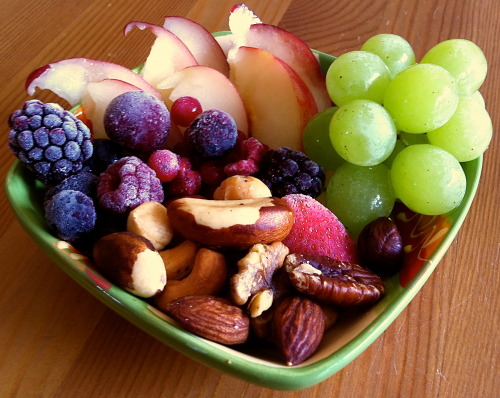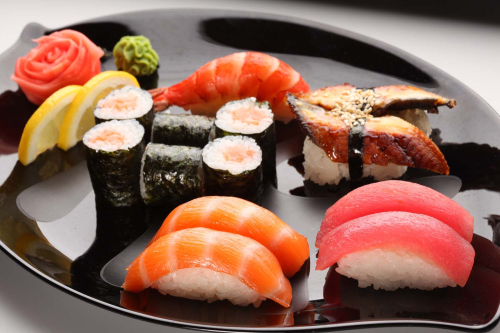The section of the book that I thought to share explored some brain-boosting foods that studies found to increase alertness and alternatively those foods that were found to depress energy.
--------
While carbohydrates and fats are described as "downers", proteins are considered a source of energy for the brain. If you're interested in boosting your brain power consider eating high protein content foods like turkey breast, low-fat seafood, nuts, or low-fat yogurt either alone or along with sugar and starch-filled foods to lessen their effect.
Why?: Protein helps to block the sleep-inducing neurotransmitter (serotonin)
We are all aware of the power of caffeine to power drowsiness and heighten alertness, but it's reported that these effects are not carried across the board. Some individuals actually experience an increase in drowsiness after caffeine consumption. Experiment with consuming caffeine and alternating it with caffeine-free days to know its effect on your body and brain.
Fruits and nuts are high in boron, a mineral that has a connection to increasing electrical activity of the brain.
I do not claim ownership of this photo. ( source)
Increased memory function is also suggested to be linked to riboflavin (sources: liver, milk, almonds and fortified cereals.)
For aging brains, look to increase cognitive function by maintaining healthy iron consumption. Iron rich foods include leafy greens, shellfish, red meat and soybeans.
For aging brains, look to increase cognitive function by maintaining healthy iron consumption. Iron rich foods include leafy greens, shellfish, red meat and soybeans.
I do not own this photo. (source)
Pair your starch with protein rich protein.
Drinking alcohol actually has a downer effect on the brain's activity. That's not to say that alcohol consumption in moderation is terrible but alcohol abuse or having more than 2 drinks a day is considered bad for the function of the brain actually decreases metabolic activity and over long periods of time can actually physically impair or reduce certain areas of the brain.
Animal fat is also reported to be a downer on brain function, including memory. Fatty acid consumption has a negative impact of the composition of the lipid membrane of cells, like brain cells.
Why? Researchers are still looking to find out.
Drinking alcohol and consuming lard.
Photo: The British Lard Marketing Board, 1950.
Of course, this is just one medical journalist's view (although she did draw conclusions from reputable studies and research.) Any changes to your diet should be made in consultation with your physician.
-Stacey Ladusch
Work Consulted:
Food- Your Miracle Medicine by Jean Carper. 1993. New York.



I often feel physically capable of taking on [home]work after a good meal or at least a morning snack. It's cool that there is evidence to support that what I do eat does matter. You mentioned that protein blocks the sleep neurotransmitter, serotonin. I thought this transmitter was also responsible for happy feelings sometimes (and actually I've heard that bananas are a great source of serotonin!). Does protein influence happy feelings?
ReplyDeleteThe last picture is hilarious! I am one of those who can drink coffee and then go directly to bed. Interesting post!
ReplyDeleteMy mom always used to give me fruit and nuts as an after school snack. Now I know why!
ReplyDelete